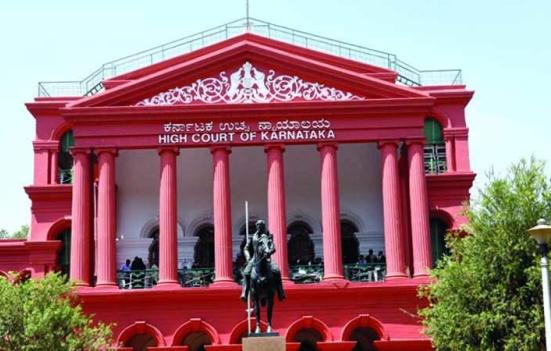By Diskha Mehta-
A two-Judge Bench of the Karnataka High Court comprising Chief Justice Abhay Shreeniwas Oka and Justice Ashok S. Kinagi quashed a private complaint against a Judicial Officer, upholding the Independence of Judiciary as part of the basic structure of the Constitution.
Facts of the Case-
- The Complainant’s son was referred to a hospital in Davanagere where he died. An F.I.R. was lodged against the doctors and several others alleging death caused by negligence under Section 304-A of the IPC.
- Meanwhile, the manager of Ahana Souharda Credit Co-operative Limited filed a case against the Complainant for pending Rs.2 Lakh and he was produced before the said Judicial officer for his hearing.
- According to the Complainant, the said Judicial officer told him that if he withdraws his complaint against the doctors, he shall be granted bail and if not, he shall be taken into custody.
- The complainant alleged that the officer committed offences punishable under Sections 166, 205, 120A, 211, 219 read with Sections 34 and 499 of IPC.
- He filed a complaint against the judicial officer and nine others at the Principal District and Sessions Judge at Bellary under Section 200 of the CrPC.
On 21 July, 2020 a suo motu petition was filed under Section 482 of the CrPC to quash the private complaint against the Judicial Officer.
It was submitted by the Amicus Curiae that the Judicial Officer acted in the course of his judicial officer and he is protected under Section 3(1) of the Judges (Protection) Act, 1985.
The counsel for the Complainant alleged that the suo motu power under S.482 CrPC can be invoked only in matters of public interest, and therefore, it was uncalled for in this case.
In reference to the Judges Protection Act, 1985, the Court held:
“…all the allegations made against him by the first respondent are about the acts done by the said Judicial Officer in the course of, acting or purporting to act in discharge of his official or judicial duty. The spoken words which are attributed to the first respondent by the second respondent in his complaint are also spoken in the course of acting or purporting to act in discharge of his duties as a Judicial Officer. Therefore, Sub-Section (1) of Section 3 of the said Act of 1985 is clearly applicable and hence, the learned Judicial Magistrate could not have entertained the complaint filed by the first respondent as against the second respondent.”
The Court further observed that for attracting Section 3(1) of the Act, it is not necessary that the Judicial officer acted in good faith or not. This is the additional protection to protect the judicial officers from both civil and criminal cases.
For S.482 of CrPC, the Court held:
“There is nothing in Section 482 which suggests that the suo motu power of this Court can be exercised only in public interest. Assuming that it could be exercised only in public interest, there is definitely an element of public interest involved in the present petition. Independence of judiciary is one of the basic structures of the Constitution of India.”
Quashing the complaint against the judicial officer, the Hon’ble Court observed that if the judicial officers are always in fear of being prosecuted for acts done in discharge of their duties, they shall never be able to do without fear in their minds.

